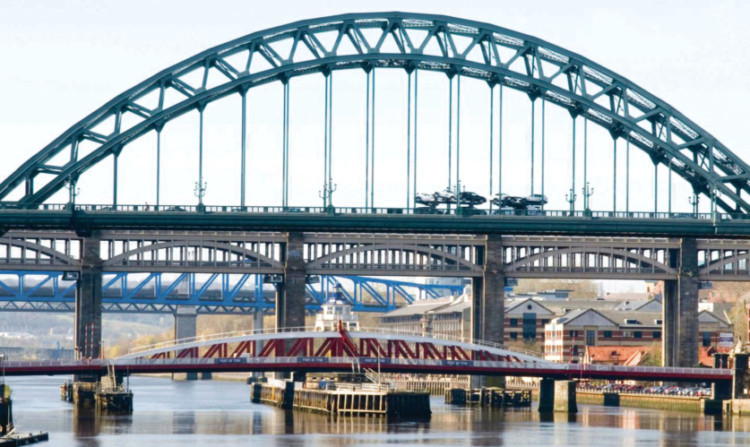
Newcastle’s high quality of life rating.
It may be best known for its fog on the Tyne, Brown Ale and fanatical football fans. But Newcastle has another claim to fame it’s just been named as having one of the highest quality of life rankings in Europe.
Researchers rated 83 European cities on whether their residents were satisfied with the lives they lead. And Tynesiders put their city among the highest in Europe for things like health and education, leaving the likes of Madrid, Paris and Rome trailing. The results were revealed in a European Commission study.
Johannes Hahn, commissioner for regional policy said: “This survey provides a useful snapshot of how Europeans feel about the cities they live in.
“It reminds us of the many elements that contribute to a sense of wellbeing and a good quality of life in our urban environments.”
The results will come as a welcome boost for northern England as Governement ministers have been urged to abandon “failing” towns and cities such as Middlesbrough, Hartlepool, Burnley and Hull.
The European report was devised by questioning 41,137 people in Europe’s major cities in 2012. Researchers asked whether residents were satisfied with how their home cities performed in areas such as health, education, jobs and housing. They also quizzed people on their views about their city’s streets and buildings, public spaces, noise, air quality, transport and safety.
It is the first major survey of its kind since 2009.
The only UK city placed better than Newcastle for city-dwellers’ “overall satisfaction” was Cardiff, while major urban centres such as London, Glasgow and Manchester lagged far behind.
Newcastle came eighth of all the European cities for its health care services with a whopping 91% of people saying they were satisfied with its doctors and hospitals.
Helen Lamont, patient services director at Newcastle upon Tyne Hospitals NHS Foundation Trust said: “We are very proud of the state of the art healthcare facilities available to us in Newcastle, and the wide range of high quality services which are renowned locally, nationally and internationally.”
Proud Geordies were also contented with the city’s education system.
Of those questioned, 81% were satisfied with Newcastle’s schools, colleges and universities, putting it 14th in the study’s league of European cities for education. Fed-up people living in noisy, smoggy cities such as Bucharest, Madrid and Athens will be envious of the quiet life on Tyneside.
A massive 88% of people in Newcastle said noise levels were satisfactory ranking the city top of all 83 in the study. It was second only to Rostock, Germany, for public satisfaction with the city’s air quality.
But the study shot down Newcastle’s reputation as a city for shopping and culture. The number of residents satisfied with museums, libraries and galleries fell by 16% when compared to the 2009 survey.
Shoppers were also disappointed, ranking Newcastle a lowly 66th, while Glasgow, London and Manchester all appeared in the top 30 cities.
Newcastle City Council leader Nick Forbes said: “Anyone who lives, works or visits the city knows what an amazing place it is. International recognition is a further boost to our reputation.”
Newcastle has been transformed over the past three decades, partly as a result of spending on regeneration schemes. Yet despite its success, ministers have been urged to forget about spending money on other “failing” northern towns and cities.
An editorial in the Economist magazine reads: “Middlesbrough, Burnley, Hartlepool, Hull and many others were in trouble even before the financial crisis. Governments should not try to rescue failing towns.
“Instead they should support the people who live in them. That means helping them to commute or move to places where there are jobs and giving them the skills to get those jobs.”

Enjoy the convenience of having The Sunday Post delivered as a digital ePaper straight to your smartphone, tablet or computer.
Subscribe for only £5.49 a month and enjoy all the benefits of the printed paper as a digital replica.
Subscribe